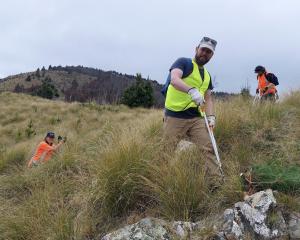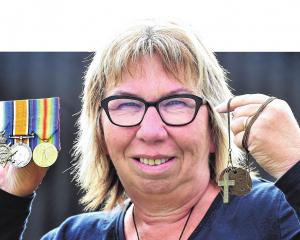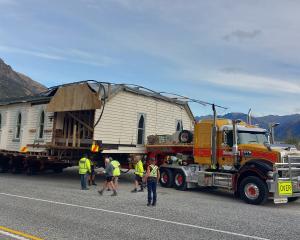Irrigators sharing water will be "critical'' in Otago again this summer, Otago Regional Council chairman Stephen Woodhead says.
Recent drier than usual conditions in Otago were likely to continue throughout summer, the council's website stated.
Conditions were likely to be similar to last summer's low rainfall and river flows, which had "resulted in irrigation restrictions for large parts of North Otago and Central Otago''.
To minimise the impact, the council was "encouraging all irrigators to work together to share the available water.''
"Collaborative sharing will help sustain river flows for longer than otherwise, and potentially allow irrigators to take water for longer.''
Council staff would be in contact with irrigation groups "throughout any low-flow event'', the site said.
Mr Woodhead said yesterday irrigators and other rural water users had built up considerable knowledge about handling dry weather.
It was "critical'' for irrigators and other rural water users to use that knowledge, and work together, he said.
Such detailed decisions on local water use simply could not be made "from an office in Dunedin''.
Otago had a "strong history of community collaboration'' over water use.
Water users came together in "either formal or informal groups'', and through community arrangements to "manage the resource'', he said.
The council said there were "low-flow alerts'' in four places at 10pm yesterday: the Taieri River at Waipiata, the Kakanui River, the Pomahaka River at Burkes Ford and on the Shag River.
Sharing water was necessary not only to meet legal obligations, but also to act fairly in the interests of neighbours, and to protect the needs of other water users.
Sensible water management also meant benefits for irrigators as well, because it could mean that could continue to operate longer, even if overall water use had been somewhat reduced, Mr Woodhead said.
A section on the internet site said the council would "carefully consider the full suite of regulatory tools'' available to "protect significant ecological values'' in Otago's waterways.
Mr Woodhead confirmed "regulatory tools'', including water shortage directives were available, but the council would try other approaches first.
The council also had a key role in gathering and sharing water data to help landowners in making good decisions about water use, he said.











